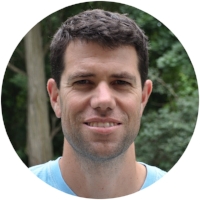Wait a minute. How do cognitive scientists teach?
/We talk the talk. But can we walk the walk?
As cognitive scientists, we love talking about our research. Particularly when it comes to learning, which is so integral to everything we do everyday. The number of cognitive scientists conducting research on retrieval practice is rapidly growing and the number of recommendations is growing even faster.
So, cognitive science research is great. But how do researchers teach?
This week, read articles from three cognitive scientists about how they teach using retrieval practice, spacing, and metacognition in their own classrooms.
For more, follow us on Twitter to see a steady stream of how experts use innovative retrieval-based teaching strategies in their classrooms.
Jennifer A. McCabe, Ph.D.
Jennifer A. McCabe, Ph.D. is an Associate Professor at Goucher College in Baltimore, Maryland. She is a leader in the field of research on metacognition and students' awareness of their own learning. Learn more about Professor McCabe's research on her laboratory website, her Goucher College faculty page, and two YouTube videos produced by Lasting Learning.
From her article on teaching with a unique metacognitive twist, featured by Improve with Metacognition:
"Students start by dividing their paper into left and right columns. For the first five minutes, they answer the five questions from memory (closed-book) in the left column. Then, I announce they can open their books and notes, and anything they want to add or modify about their answers is written in the right column... Using the left-right column method, they are forced not only to spend time effortfully retrieving the information (or even just trying – which as we discuss in class, still benefits memory), but also have a clear record of how easily and accurately they could arrive at correct answers from long-term memory, without consulting external sources. This supports metacognition by building students’ explicit awareness of their level of learning, which can then be used to guide their further learning behaviors."
Nate Kornell, Ph.D.
Nate Kornell, Ph.D. is an Associate Professor at Williams College in Williamstown, Massachusetts. He is a leader in the field of research on retrieval success and interleaving. Learn more about Professor Kornell's research on his website, Psychology Today blog, Lasting Learning articles, and Twitter.
From his article on teaching with daily quizzes, featured by Psychology Today:
"The daily quizzes worked even better than I had hoped. My students unanimously approved of the quizzing… They were knowledgeable during discussions because they had read the material closely, so the discussions were better than usual. Furthermore, with the quiz out of the way, the students did not spend the rest of the class trying to write everything down in a frenzy of note taking so that they could study later. This wasn’t because of the daily quizzing, it was because there was no midterm or final. I hadn’t anticipated this difference, but it was great. During class they focused on the content of the discussion without distractions."
Pooja K. Agarwal, Ph.D.
Pooja K. Agarwal, Ph.D. is an Assistant Professor at the Berklee College of Music in Boston, Massachusetts. She is a leader in the field of applying retrieval practice research in authentic K-12 classrooms. Learn more about Professor Agarwal's research on her website and Twitter.
From her article on teaching with weekly low-stakes quizzes, featured by the Noba Project:
"Throughout the semester, I increase student buy-in by: Presenting research about benefits from retrieval practice; acknowledging that it is challenging, but that challenges are good for learning; and reminding them that there are no midterms or finals. I also aim to reduce the negativity associated with retrieval by asking optional questions (e.g., What was your favorite breakfast as a kid? Would you rather own a sailboat or a hot air balloon?). Discussing student responses for these optional questions is a nice way to start each class, to share experiences, and build community before diving into course topics."















